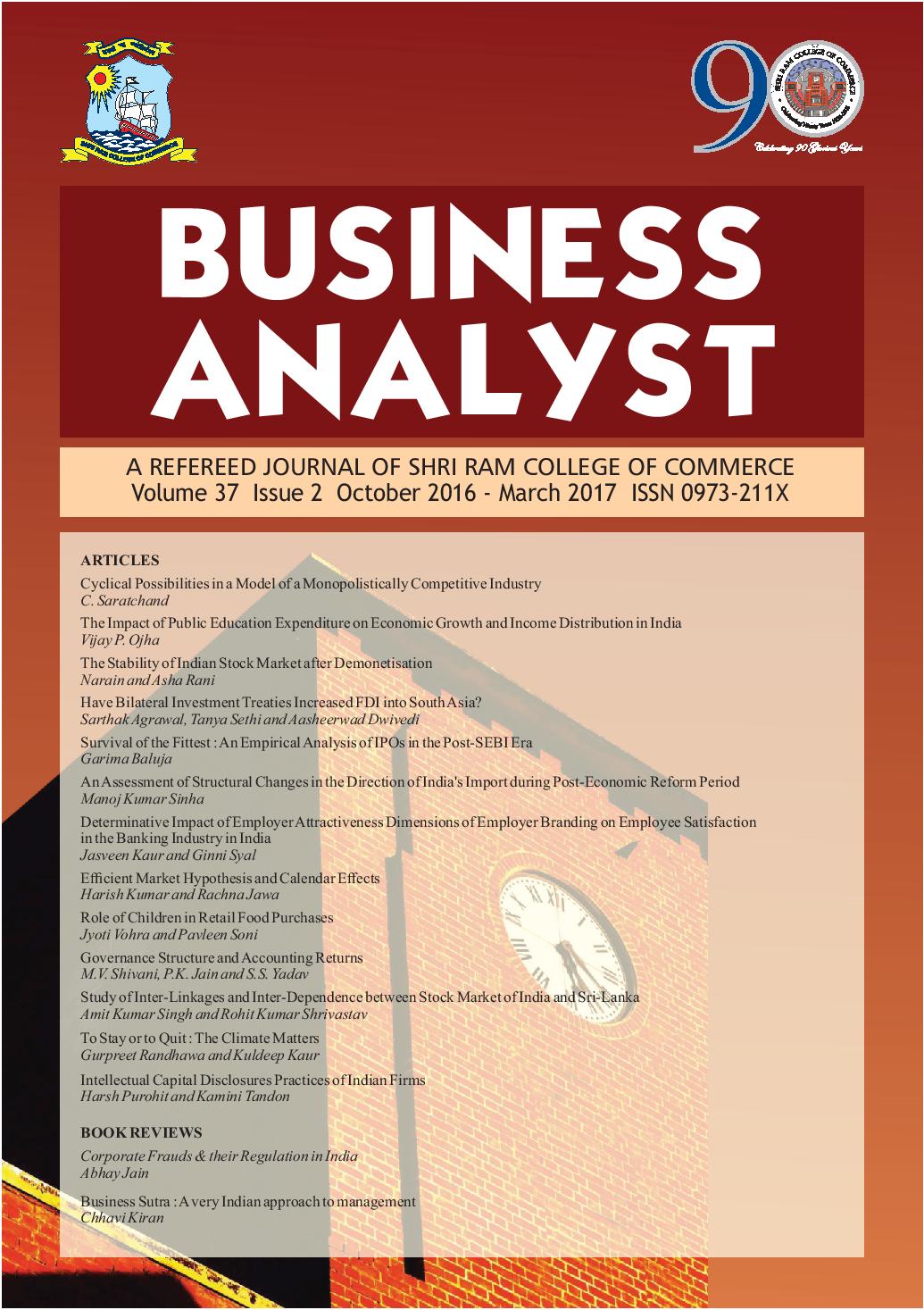TO STAY OR TO QUIT: THE CLIMATE MATTERS
Gurpreet Randhawa and Kuldeep Kaur
Volume 37, Issue 2 (October 2016 to March 2017)Abstract
Download ArticleSuccessful organizations strive to solve the perennial problem of employee turnover drawing their focus on factors which are considered responsible for it. The present study aims to determine the perception of employee turnover intentions and its relationship with organizational climate. The sample consisted of 509 respondents working in 10 large scale food processing companies of Punjab. The data was collected using a single structured questionnaire and was analysed using Pearson product–moment correlation and multiple regression analysis. The findings of the study have indicated a moderate level of employee turnover intentions prevailing in the large scale food processing companies of Punjab. A strong negative correlation has been observed between overall organizational climate and turnover intentions (r = -0.603, p<.01). Further, the result of multiple regression analysis has shown that the dimensions of organizational climate such as supervisory support, clarity of organizational goals, participation, welfare, training, pressure to produce, efficiency, integration, performance feedback and autonomy have significant impact in determining the employee turnover intentions.
INTELLECTUAL CAPITAL DISCLOSURES PRACTICES OF INDIAN FIRMS
Harsh Purohit and Kamini Tandon
Volume 37, Issue 2 (October 2016 to March 2017)Abstract
Download ArticleIn the New Economy, Intellectual Capital(IC) can be recognized as an integral factor driving economic growth. Rapid globalization characterized by advances in technology, research & development and increasing competition has been essentially driven by growth in IC. But the current accounting framework do not provide for mandatory reporting of intellectual capital items in the annual financial statements in any country. There is limited disclosure of intellectual capital related items and whatever information is provided, it is based on voluntary disclosures only. At best, the only intangible assets that have found place in corporate financial statements are in the nature of intellectual property such as patents, trademarks and acquired items like goodwill. Tangible assets have failed to explain the increasing gap between market and book value of firms, this creates the need for more comprehensive disclosure practices taking into account the crucial contribution of intangible resources. Thus, the present study has been undertaken to study and analyze the intellectual capital disclosure practices of publicly listed firms in India in which can provide useful information on developing the intellectual capital base of the nation.
Book Review - CORPORATE FRAUDS & THEIR REGULATIONS IN INDIA
Abhay Jain
Volume 37, Issue 2 (October 2016 to March 2017)Abstract
Download ArticleCorporate fraud, whether big or small has become a persisting phenomenon now these days. If someone delves down the surface of the corporate world, he will come across a continuous stream of crucial corporate scams which are approximately unbelievable in the sheer scale of their subterfuge. The perpetrators of such frauds intricate their web of deceit, entice the stakeholders initially to invest their hard earned money and become fugitives someday by allegedly duping these stakeholders leaving them behind for terrible consequences. It becomes imperative to spread awareness by engaging the readers to enlighten them about the major causes of such frauds, enable them to analyse fraud risk and accordingly legal remedies available under different regulatory frameworks for effective fraud preventions, in turn minimizing financial catastrophes.




